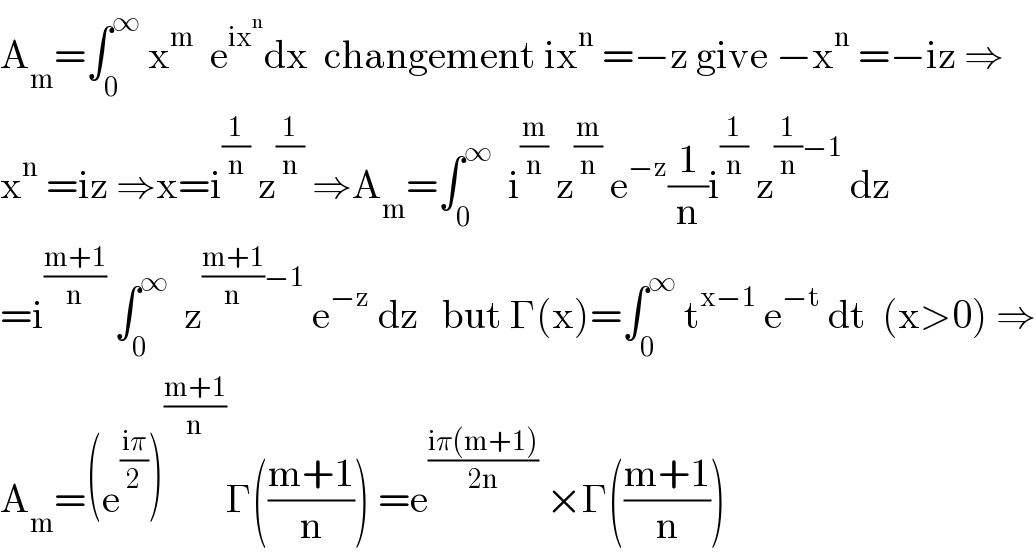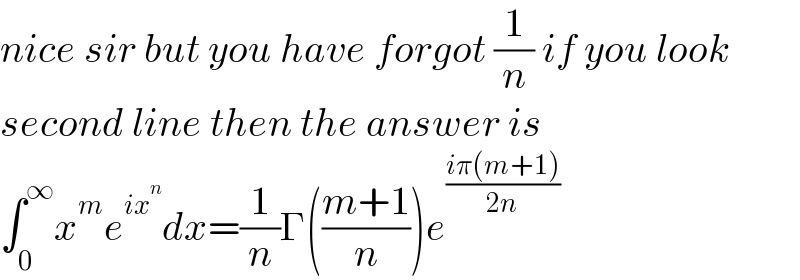
Question and Answers Forum
Question Number 148816 by ArielVyny last updated on 31/Jul/21

Answered by mathmax by abdo last updated on 01/Aug/21

Commented by ArielVyny last updated on 01/Aug/21

| ||
Question and Answers Forum | ||
Question Number 148816 by ArielVyny last updated on 31/Jul/21 | ||
 | ||
Answered by mathmax by abdo last updated on 01/Aug/21 | ||
 | ||
| ||
Commented by ArielVyny last updated on 01/Aug/21 | ||
 | ||